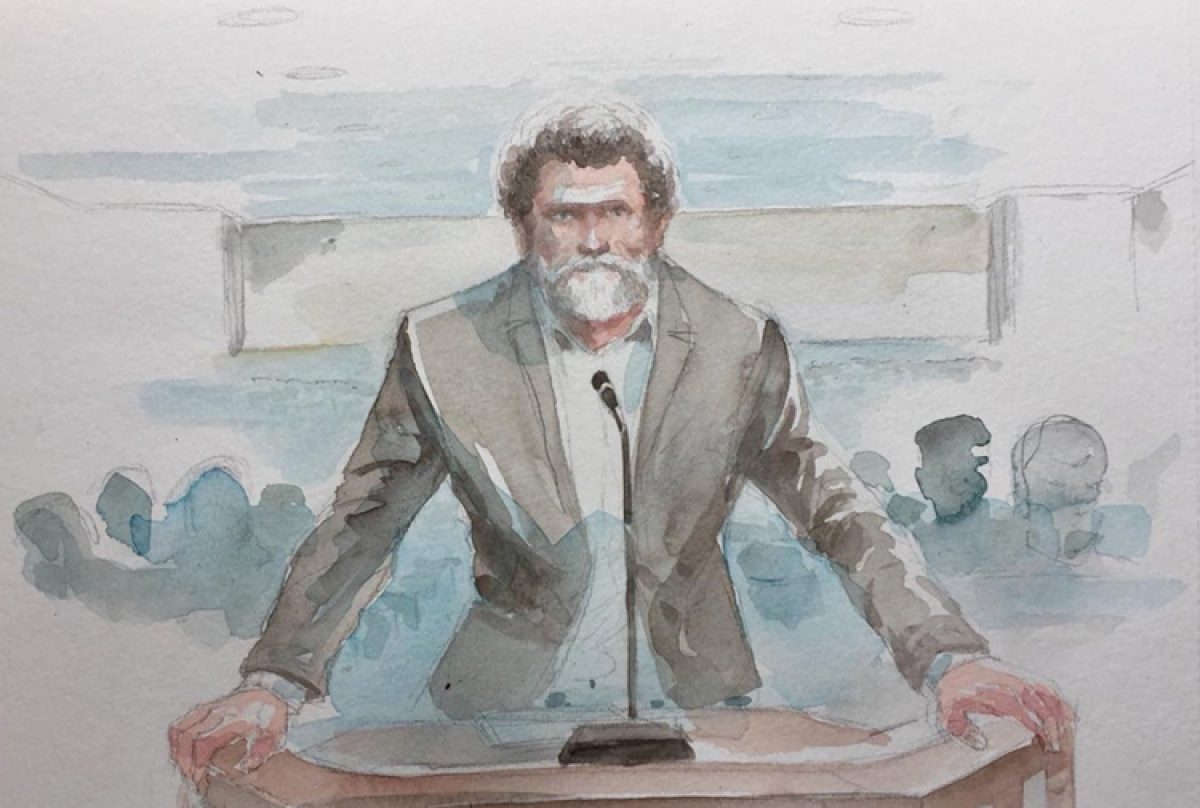Kavala Still Not Released Despite Possible Council of Europe Sanctions

In the second hearing of the case, which was opened by combining the Gezi and Çarşı cases, at the 13th High Criminal Court on November 26, 2021, the release request of businessperson Osman Kavala was rejected with a comment from one member. The next hearing of the case, in which 52 people are on trial, including Kavala, the only person on trial as a prisoner, will be held on January 17, 2022. Kavala is on trial for ‘attempting to overthrow the constitutional order’ and ‘political and military espionage’ and has been in detention for 4 years.
Tuğçe Duygu Köksal, the lawyer of Mine Özerden, a human rights lawyer and one of the defendants in the Gezi Case, evaluated what it means for the Court not to issue a release order for Kavala.
Köksal expressed the importance of Kavala’s situation in the Gezi Case with the following words: ‘The determinations in the finalized judicial decision about Kavala in the Gezi Case are ‘both Article 18 of the ECHR and the provision on strong suspicion of guilt regarding Kavala’s detention’, affect the outcome of the case; therefore, the eviction order must be enforced’.
‘Kavala is a Key Person in the Development of the Civil Space; His absence is felt’
Amnesty International is one of the international non-governmental organizations that closely followed the Gezi Case. Milena Buyum, Amnesty’s Turkey Campaigns Officer, stated that the ECHR has confirmed the impact that Osman Kavala’s continued detention has had on civil society: ‘The ECHR has determined that Kavala’s detention was carried out to silence him and to intimidate civil society in Turkey. This is an accurate finding. However, Kavala is not alone. This protracted, fouled case needs to be evaluated as a whole in context with irrelevant and unproven accusations.’
Stating that Turkey has been in an environment where it was difficult to access human rights, especially for the last 5 years and even before, Buyum noted that the Gezi Case and Kavala are not the only examples. Emphasizing the importance of Kavala in terms of civil society, Buyum said, ‘Kavala is a key person in terms of the role it plays in finding the voice of civil society through its activities in the field of art and human rights, in the development and growth of the civil space. His absence is felt.’
Milena Buyum also described the situation of NGOs operating independently and working on rights-based activities in Turkey as ‘desperate’. She stated that the Law on the Prevention of Financing the Proliferation of Weapons of Mass Destruction, which was enacted at the end of last year, puts a lot of pressure on it. He noted that although not all of the articles of the law have yet been implemented, it is seen as a major obstacle for NGOs to develop projects and develop cooperation with each other. Buyum, who said that they closely monitor the effects of the law in question on the civil space, said that especially public authorities are putting pressure on NGOs with increasing controls.
‘Kavala’s Detention Means “If You Become a Subject in Claiming Rights, You Will Face These”!’
The Equal Rights Monitoring Association (EŞHİD) is one of the NGOs that closely followed the Gezi Case. EŞHİD lawyer Kader Tonç shared his observations by following the Gezi Case and the 3 separate cases in which Kavala was detained in separate courts: ‘The changes in the courts and committees of the cases in which Kavala is tried, and the new committees for lawyers and the courts are constantly converging, these are also violations of rights. Nearly 4 years of detention, new judges who do not know the file, changing committees show that there is no judge’s assurance. The process progresses like a dodgeball that is constantly combined with another file.’
Stating that Kavala’s detention created a serious intimidation on civil society, Tonç said: ‘From the point of view of Kavala, 4 years of imprisonment is a very long time. In addition, other ongoing rights violations that Kavala has been subjected to are putting pressure on civil society. These mean that “if you become the subject of the struggle for rights, you will face such a process.” Because of this, many NGOs are here, watching, supporting and reporting on this case. They are physically here.’
‘We Follow This Case to Defend All Civil Society and Rights Defenders’
Ece Koçak from the Memory Center, another NGO that closely followed the Gezi Case, noted that with the ECHR decision, it was determined that Kavala was detained with a political motive, in violation of Article 18.
Koçak stated that with the continued detention of Kavala, many activities supported by him were disrupted, in addition he underlined that the erosion experienced in the field of democracy and peace in Turkey in recent years has a great impact on the negative situation on the civil space: ‘Kavala was one of the Hafıza Merkezi’s colleagues. There were many works that we carried out jointly with Anadolu Kültür on issues such as ending impunity and facing the past. In this sense, we perceive Kavala not only as the person we are advocating with, but also as a threat to us as a result of the injustice done to him. We are following this case to defend all civil society and rights defenders.’

Bizi Takip Edin